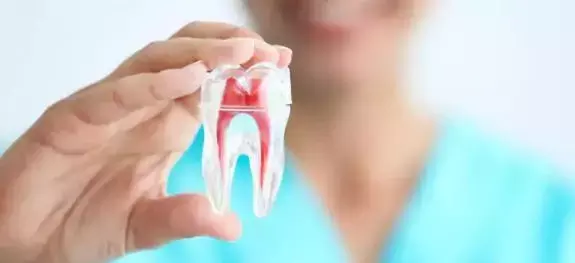- Home
- Medical news & Guidelines
- Anesthesiology
- Cardiology and CTVS
- Critical Care
- Dentistry
- Dermatology
- Diabetes and Endocrinology
- ENT
- Gastroenterology
- Medicine
- Nephrology
- Neurology
- Obstretics-Gynaecology
- Oncology
- Ophthalmology
- Orthopaedics
- Pediatrics-Neonatology
- Psychiatry
- Pulmonology
- Radiology
- Surgery
- Urology
- Laboratory Medicine
- Diet
- Nursing
- Paramedical
- Physiotherapy
- Health news
- Fact Check
- Bone Health Fact Check
- Brain Health Fact Check
- Cancer Related Fact Check
- Child Care Fact Check
- Dental and oral health fact check
- Diabetes and metabolic health fact check
- Diet and Nutrition Fact Check
- Eye and ENT Care Fact Check
- Fitness fact check
- Gut health fact check
- Heart health fact check
- Kidney health fact check
- Medical education fact check
- Men's health fact check
- Respiratory fact check
- Skin and hair care fact check
- Vaccine and Immunization fact check
- Women's health fact check
- AYUSH
- State News
- Andaman and Nicobar Islands
- Andhra Pradesh
- Arunachal Pradesh
- Assam
- Bihar
- Chandigarh
- Chattisgarh
- Dadra and Nagar Haveli
- Daman and Diu
- Delhi
- Goa
- Gujarat
- Haryana
- Himachal Pradesh
- Jammu & Kashmir
- Jharkhand
- Karnataka
- Kerala
- Ladakh
- Lakshadweep
- Madhya Pradesh
- Maharashtra
- Manipur
- Meghalaya
- Mizoram
- Nagaland
- Odisha
- Puducherry
- Punjab
- Rajasthan
- Sikkim
- Tamil Nadu
- Telangana
- Tripura
- Uttar Pradesh
- Uttrakhand
- West Bengal
- Medical Education
- Industry
Artificial neural network promising tool in pain prediction after RCT: Study

With the development of endodontic treatment, the incidence of pain and swelling during RCT is only approximately 10%. However, patients frequently report of postoperative pain.
Prospective clinical studies have revealed that approximately 21%, 15% and 7% of patients have mild, moderate and severe pain, respectively, after RCT. The rapid and accurate prediction of postoperative pain is necessary in root canal therapy, which can be conducive to the formulation of follow-up diagnosis and treatment plans, the adoption of preventive measures. To date,practitioners often assess pain after RCT on the basis of personal clinical experience with no universally accepted objective methods.
According to a recent research where researchers used Artificial neural network -ANN model to estimate the post-operative pain of RCT, has highlighted an accuracy as high as 95.60%, which can prove to be of significant clinical value in assessing dental pain post RCT by dentists. The novel research has been put forth in Scientific Reports,a Nature publication.
Artificial neural network (ANN) is the most recent and rapid development in the field of nature-inspired algorithms. ANN is a system based on the human brain structure and function imitation. It may play an important role in providing technical possibilities for predicting pain, as well as understanding of the individual physiological mechanisms of pain and treatment.
With the aim to evaluate the accuracy of back propagation (BP) artificial neural network model for predicting postoperative pain following root canal treatment (RCT), the team tested data from 300 patients who underwent RCT. The inclusion criteria were as follows: the affected teeth were receiving their first RCT, no contraindications for RCT was found, no psychoactive or analgesic drugs had been orally taken or infused for the past 1 month. Observing the high accuracy rates , the team noted that "Therefore, ANN based on BP algorithm exhibits high prediction accuracy and may benefit dentists and patients in future root canal therapy. After further optimizing the measurement method, the precision of ANN model will continue to improve."
"The application of ANN to anticipate postoperative pain following RCT has never been reported before. In the present study, we utilized the ANN model of error BP algorithm to predict the occurrence and degree of spontaneous postoperative pain after RCT. We wish that in RCT treatment, this model could effectively improve patients' trust in dentists and help dentists make suitable decisions." the team added.
For full article follow the link: Gao, X., Xin, X., Li, Z. et al. Predicting postoperative pain following root canal treatment by using artificial neural network evaluation. Sci Rep 11, 17243 (2021). https://doi.org/10.1038/s41598-021-96777-8
Source: Scientifc Reports
Dr Satabdi Saha (BDS, MDS) is a practicing pediatric dentist with a keen interest in new medical researches and updates. She has completed her BDS from North Bengal Dental College ,Darjeeling. Then she went on to secure an ALL INDIA NEET PG rank and completed her MDS from the first dental college in the country – Dr R. Ahmed Dental College and Hospital. She is currently attached to The Marwari Relief Society Hospital as a consultant along with private practice of 2 years. She has published scientific papers in national and international journals. Her strong passion of sharing knowledge with the medical fraternity has motivated her to be a part of Medical Dialogues.
Dr Kamal Kant Kohli-MBBS, DTCD- a chest specialist with more than 30 years of practice and a flair for writing clinical articles, Dr Kamal Kant Kohli joined Medical Dialogues as a Chief Editor of Medical News. Besides writing articles, as an editor, he proofreads and verifies all the medical content published on Medical Dialogues including those coming from journals, studies,medical conferences,guidelines etc. Email: drkohli@medicaldialogues.in. Contact no. 011-43720751


